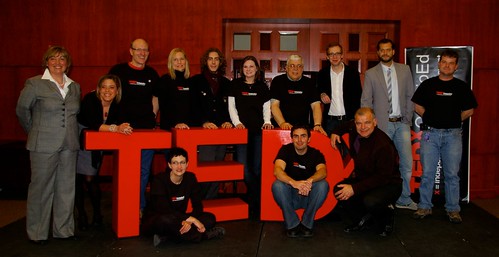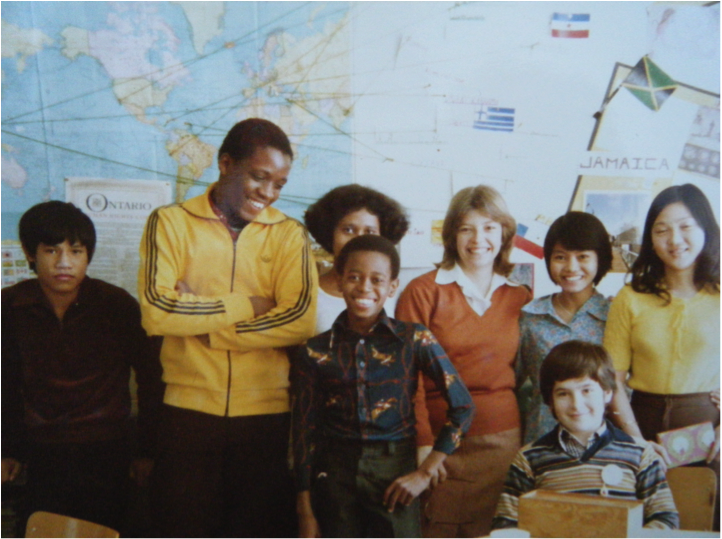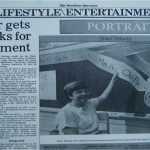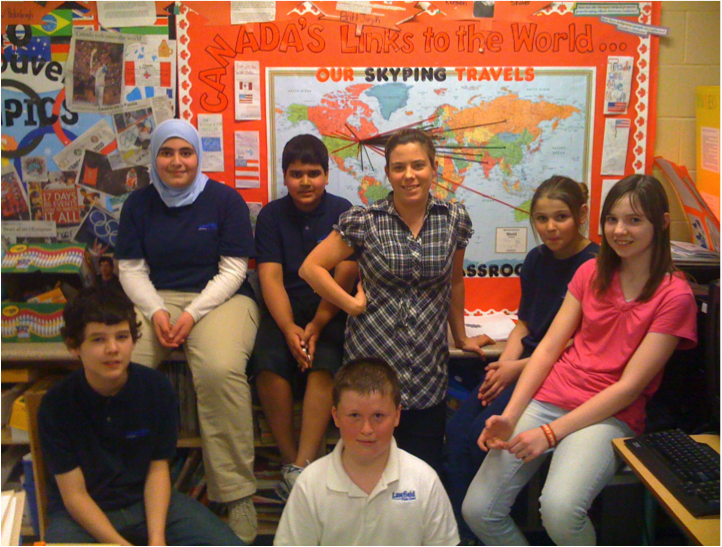
WHY AN INQUIRY APPROACH?
Many years ago, during my teacher training, I was asked to write my philosophy of education. As a new teacher, this was a daunting task because I had not yet tapped into a philosophy. At that time, the only thing that I could do was reflect upon how I learn. I was always driven by inquiry. I asked lots of questions and when I got the answers, I asked more questions based on the answers. I liked to create my own assignments and I often neglected the required ones. I wanted to be in control of my own learning. I was the student that asked, “what’s the point of this?”. I was not good at memorizing facts, resulting in many years of poor grades, – What I needed the most, was to be given the freedom to discover knowledge for myself.
I don’t know if it is coincidence, or irony, or purposeful planning but it seemed to me that the principles of inquiry based learning were a major theme at TedxOntario on April 9, 2010.
Ray Zhab from Impossible2Possible inspired the audience as he talked about how his personal journey of transformation, through inquiry and experience has changed his life. Ray uses his experiences to inspire people – children and adults- that they CAN achieve beyond their perceived limits and that hard work, determination and support are the key factors. Lee LeFever of Commoncraft, followed Ray and again emphasized the importance of connections when learning. Learning something new needs to have a meaningful context. Joel Savoy, a classroom teacher, again emphasized the importance of inquiry through hands-on experiential learning programs and connections to the world beyond the classroom. We heard Tim Long joke about his own experiences with “do it yourself” winner projects, but his message was clear – discovery is engaging.
It has taken many years for me to recognize that my approach to learning is one that widely known as an “inquiry approach”.
“Its core premises include the requirement that learning should be based around student’s questions. Pedagogy and curriculum requires students to work together to solve problems rather than receiving direct instructions on what to do from the teacher. The teacher’s job in an inquiry learning environment is therefore not to provide knowledge, but instead to help students along the process of discovering knowledge themselves. – Wikipediea
The education system that I grew up with, did not support this approach. And it didn’t for Jesse Brown either – another TedxOntario speaker. Jesse explained that in spite of this system, he persisted by constantly asking questions, trying new methods of learning and tapping into the intelligences that were not considered ‘academic enough’ for school credit. He joked about spending so much time ‘in the office’ and yet, all joking aside, Jesse expressed grave concern that school has not allowed- or encouraged – many students to learn in the visual and interactive way that they are used to -during non school hours.
It is ironic, and not surprising that I too, a teacher today, base my own philosophy on Dewey’s theory of learning – “that the best learning and growth occur when people are confronted with authentic, real problems to solve.” Whether it be constructing a ‘hands-on’ Lego set, or leading expeditions across the Sahara Desert, or creating a learning platform to hone and support visual literacy, I believe in what Dewey emphasized,
“that curriculum and instruction should be based on integrated, problem-based tasks with hands-on activities that engage learners.
Even a century ago, he advocated that students needed a wider sense of themselves and a global approach.

Tim Ludwig – was the last presenter for the TedxOntario event. A shy, high school student, braved the stage and conquered his own fear and years of discomfort amongst educators. His message was clear. Get to know your students. He reminded the educators in the crowd that boredom results in disruption. Tim talked about his need for inquiry based, hand-on and experiential learning as not optional – but as necessary for kids like him (and me…..and Jesse Brown) to succeed.
There are many blogs and websites that discuss inquiry based learning. Thirteen.org advocates that “Educators must understand that schools need to go beyond data and information accumulation and move toward the generation of useful and applicable knowledge” and stated that “Inquiry in education should be about a greater understanding of the world in which they live, learn, communicate, and work.” The Queens University page states that, “one of the most important teaching practices used today is the use of inquiry in the classroom. With the inquiry method of instruction, students arrive at an understanding of concepts by themselves and the responsibility for learning rests with them”. Further, the Center for leadership in learning at McMaster University suggests that, “Teaching through “inquiry” involves engaging students in the research process with instructor support and coaching at a level appropriate to their starting skills. Students learn discipline specific content but in doing so, engage and refine their inquiry skills.”




